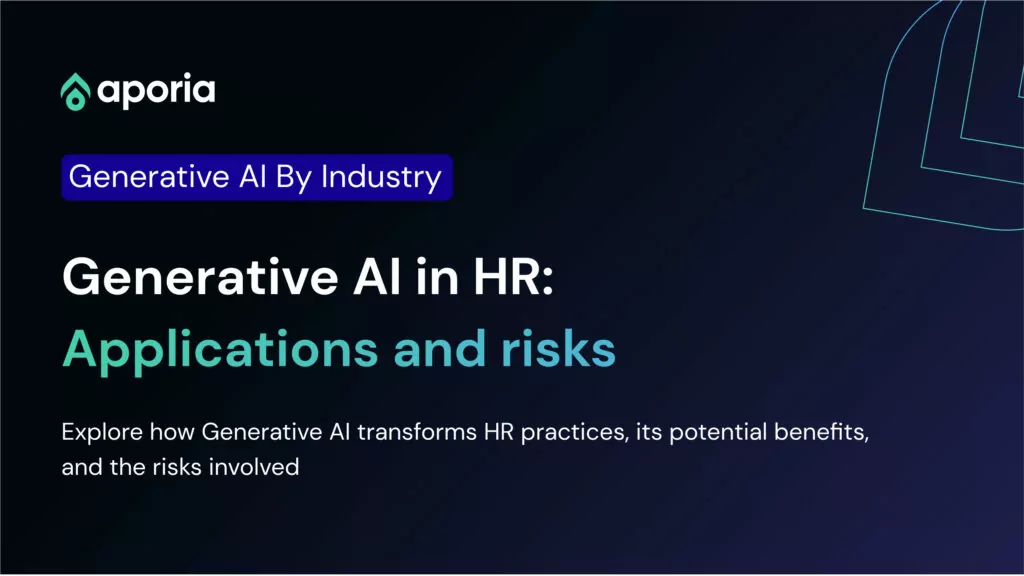
Generative AI in HR: Applications and risks
Imagine an HR department that can anticipate your next career move before you realize it, customize every encounter, and quickly...
Aporia has been acquired by Coralogix, instantly bringing AI security and reliability to thousands of enterprises | Read the announcement
Generative AI (GenAI) has emerged as a transformative force in healthcare, revolutionizing patient care, diagnostics, and medical research. From predictive analytics to personalized treatment plans, AI is ushering in a new era of efficiency and precision.
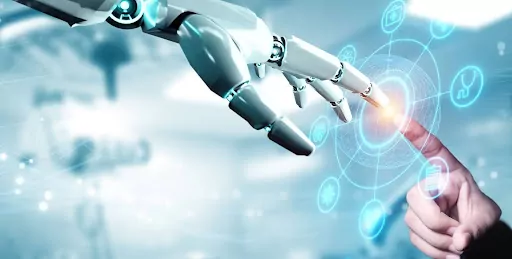
The global AI in healthcare market is anticipated to grow substantially, reaching approximately 188 billion U.S. dollars by 2030~Statista.
This article explores the impact of GenAI in healthcare, exploring its potential to improve diagnoses, streamline workflows, and ultimately redefine the standard of care.
Generative Artificial Intelligence (AI) is a subset of AI that involves systems capable of creating new, original content. Unlike traditional AI models designed for specific tasks, generative AI can generate diverse outputs, such as images, text, or even entire datasets.
AI simplifies tasks and offers valuable insights, enabling medical professionals to focus on crucial decisions. Generative AI enhances overall patient care, creating new tools and improved communication channels. Its integration represents more than just technological progress—it marks a fundamental shift in healthcare delivery, prioritizing improved outcomes and a patient-centric approach.
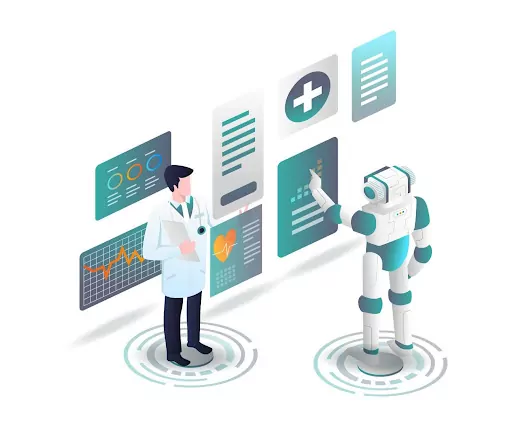
AI’s integration into healthcare is multifaceted, encompassing various applications that revolutionize traditional practices. Here’s how AI is used in healthcare:
For instance, IBM’s Watson for Oncology analyzes vast medical literature, clinical trial data, and patient records to assist oncologists in devising personalized cancer treatment plans. This AI-driven tool provides evidence-based insights, aiding clinicians in making informed decisions about the most effective and tailored therapies for individual cancer patients.
Artificial Intelligence (AI) holds considerable promise for enhancing healthcare in various dimensions, such as
One tangible example of AI improving healthcare is remote patient monitoring. Companies like Biofourmis utilize AI algorithms to monitor patients with chronic conditions continuously. By analyzing data from wearable devices and other sources, the AI system can detect subtle changes in health metrics, allowing for early intervention and personalized adjustments to treatment plans.
Generative Artificial Intelligence in healthcare represents a significant technological advancement. This subset of AI involves systems capable of creating new and diverse content. In the healthcare sector, this technology holds promise for innovative applications, ranging from research and diagnostics to personalized medicine.
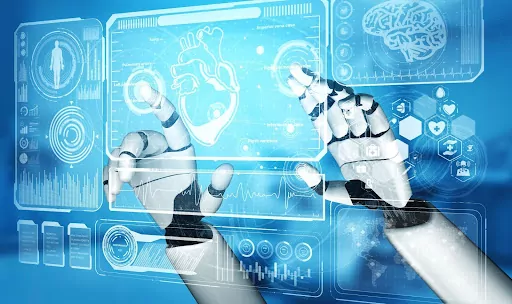
Generative AI possesses diverse applications within the healthcare sector, holding the potential to bring about substantial changes to the generative AI and healthcare industry.
Below are practical instances illustrating how generative AI is currently being utilized in healthcare:
Generative AI models craft synthetic images closely resembling real ones, contributing to advancements in medical imaging for improved diagnostic precision. For example, Siemens Healthineers employs generative AI in its MAGNETOM Free.Max MRI scanner, enhancing image quality and resolution.
This technology assists in more precise visualization, aiding healthcare professionals in accurate diagnostics.
Generative AI aids in automating administrative responsibilities, alleviating the workload on healthcare professionals, and fostering operational efficiency. One of the generative AI examples in healthcare is Olive, an AI-powered automation platform that streamlines administrative tasks in healthcare settings.
It automates billing, scheduling, and claims processing processes, reducing the administrative burden on healthcare professionals.
Generative AI minimizes downtime for medical devices by predicting maintenance needs and enhancing overall patient care. For instance, GE Healthcare utilizes generative AI for predictive maintenance in medical devices. The AI algorithms analyze device data to predict potential issues, allowing for proactive maintenance and minimizing disruptions in patient care.
Generative AI plays a vital role in predicting and monitoring the spread of infectious diseases, offering essential insights for global public health in combating epidemics and pandemics.
One example is BlueDot, a Canadian health intelligence firm that utilizes generative AI to predict and track the spread of infectious diseases. BlueDot successfully predicted the international spread of COVID-19, showcasing the potential of AI in pandemic preparedness.
Generative AI accelerates the drug discovery process through the analysis of complex biological data, streamlining and enhancing the efficiency of drug development. For example, Atomwise, a biotech company, employs generative AI for drug discovery.
Atomwise accelerates the identification of promising compounds for various diseases by predicting potential drug candidates and analyzing molecular structures.
Another study revealed that in a mere six hours, artificial intelligence proposed 40,000 novel potential chemical weapons.
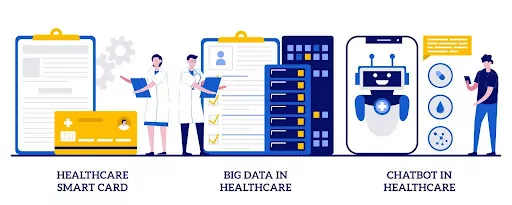
Here are some of the Generative AI healthcare use cases.
The Healthcare Summit for Generative AI serves as a gathering where healthcare professionals, technologists, and researchers converge to explore the recent progress in generative AI and its relevance to healthcare.
This summit explores diverse subjects, including AI/ML solutions tailored for healthcare and life sciences, reference architectures for AI, and the contributions of AWS Partners in advancing generative AI across government, healthcare, and public sector organizations.
Attendees at this event can gain insights into the practical integration of generative AI within healthcare, fostering a platform for sharing experiences and exchanging valuable perspectives.
The integration of Artificial Intelligence in healthcare heralds a transformative era marked by improved diagnostics, personalized treatments, and streamlined operations. As AI continues to evolve, its applications promise to revolutionize patient care, enhance clinical outcomes, and redefine the very fabric of the healthcare industry, paving the way for a more efficient and patient-centric future.
Imagine a generative AI chatbot revealing sensitive medical info or a new pharmacy app recommending the wrong drug. These realities just can’t happen in the healthcare industry, underscoring the need to protect against AI risks. Aporia Guardrails ensures interactions with AI are reliable, safe, and goal driven:
Book a demo to see Guardrails in action.
Yes, AI should be used in healthcare, as it offers valuable applications such as improved diagnostics, personalized treatment plans, administrative task automation, and efficient data analysis, ultimately enhancing patient care and outcomes.
Foundation models can advance AI in healthcare by serving as powerful starting points for various applications. These models, pre-trained on vast datasets, provide a foundation of knowledge and can be fine-tuned for specific healthcare tasks, enabling quicker development of accurate and specialized AI solutions for medical diagnostics, drug discovery, and patient care.

Imagine an HR department that can anticipate your next career move before you realize it, customize every encounter, and quickly...
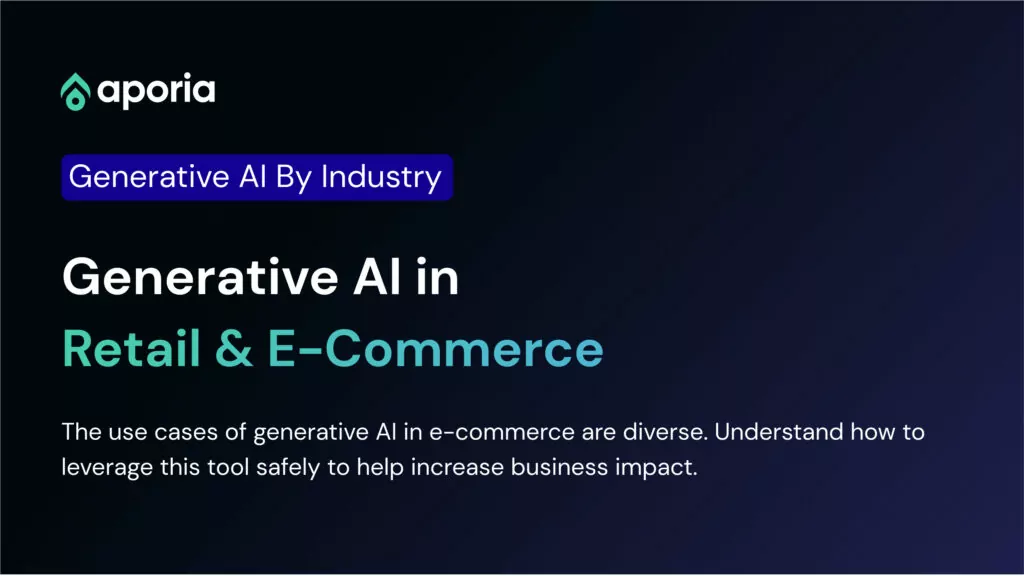
Generative AI (GenAI) is reshaping the way we shop online. The e-commerce sector has quickly leveraged LLMs to generate unique...
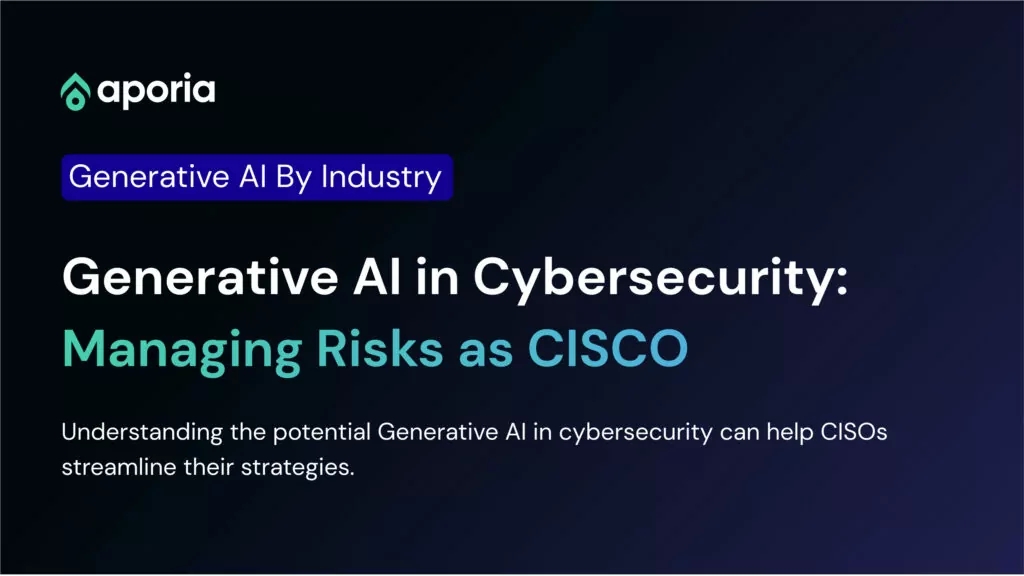
In cybersecurity, Chief Information Security Officers (CISOs) face an increasingly complex challenge to safeguard sensitive information and systems. The integration...
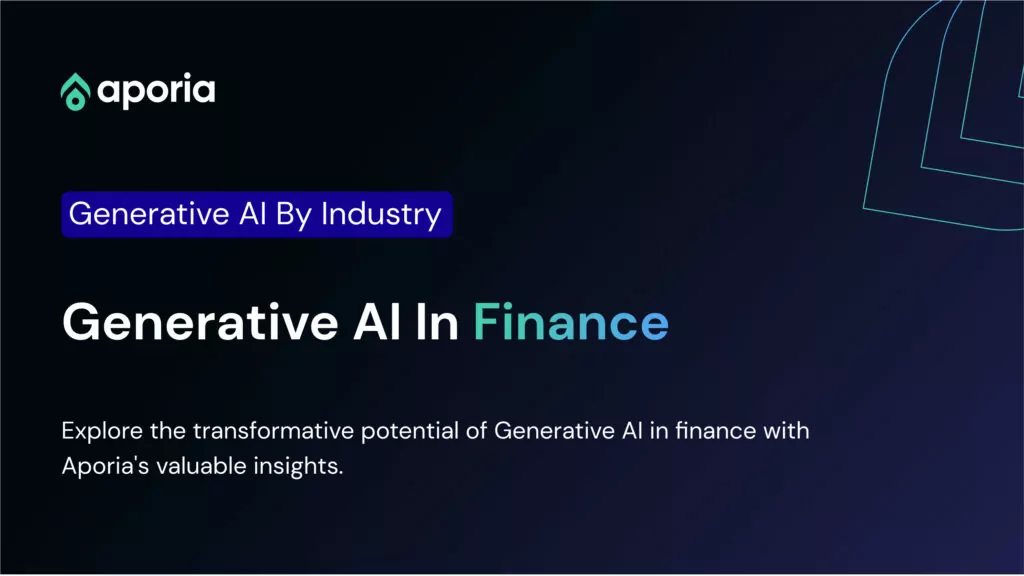
In the finance sector, Generative Artificial Intelligence (AI) is redefining traditional approaches and augmenting decision-making processes. This technology, driven...